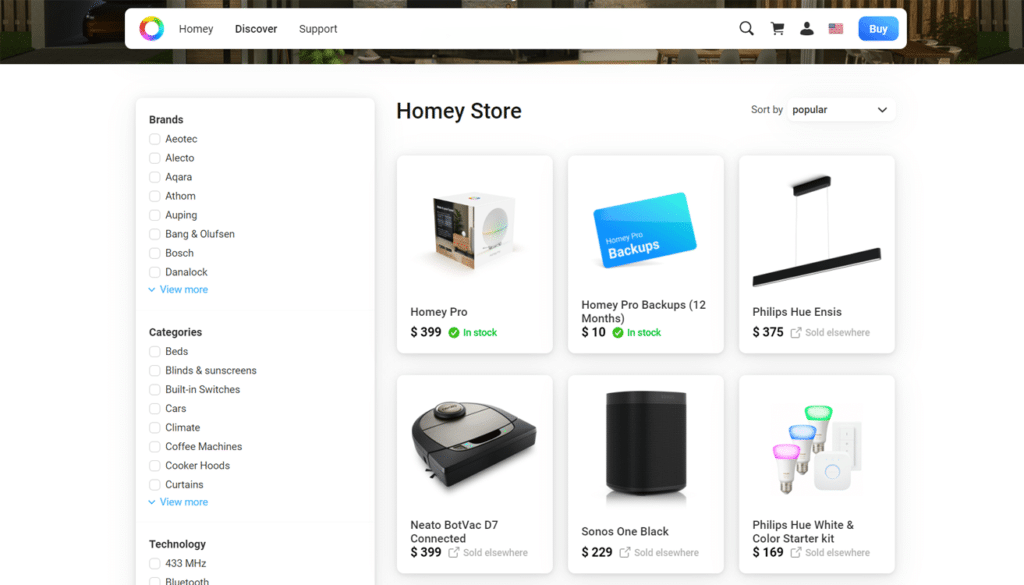Introduction
In the competitive landscape of e-commerce, every detail matters, and that includes how you use keywords on your website. While keywords are the linchpin of any good SEO strategy, there’s a hidden pitfall that many e-commerce sites fall into keyword cannibalization. This seemingly innocuous mistake can have far-reaching consequences, affecting not just your SEO rankings but also the effectiveness of your site search. In this comprehensive guide, we’ll delve into the intricacies of keyword cannibalization, its impact on e-commerce websites, and actionable steps to identify and resolve this issue.
Understanding keyword cannibalization
Keyword cannibalization might sound like a term straight out of a horror movie, but in the realm of e-commerce SEO, it’s a very real and prevalent challenge. So, what exactly is it?
At its core, keyword cannibalization occurs when multiple pages on your website compete for the same keyword or set of keywords. Instead of bolstering the strength of a particular page, you’re essentially pitting your own pages against each other in the eyes of search engines.
For instance, imagine you run an e-commerce store selling athletic wear. You have separate pages for running shoes, hiking boots, and training sneakers. If all these pages are optimized for the generic term “sports shoes,” they end up vying for the attention of search engines for the same keyword. The result? Search engines, like Google, may struggle to determine which page is the most relevant, leading to potential ranking drops for all involved pages.
A study by Wix SEO Hub highlighted that while having more relevant content might seem like a pathway to more potential traffic from search engines, too much similar content can actually hurt your Google rankings. Also, Shopify’s insights revealed that e-commerce websites, with their multitude of product pages, are particularly susceptible to the pitfalls of keyword cannibalization.
The crux of the issue isn’t just about SEO rankings. When your pages cannibalize each other, it dilutes the message and confuses potential customers. They might land on the hiking boots page when they were specifically looking for running shoes, leading to a suboptimal user experience and potentially lost sales.
The negative effects of keyword cannibalization on SEO
While the concept of keyword cannibalization might seem abstract, its repercussions on a website’s SEO performance are real and often detrimental. Here’s a closer look at the negative effects:
- Diminished Page Authority: When multiple pages target the same keyword, search engines can get confused about which page holds the most relevance. This can dilute the authority of your primary page, causing it to lose its ranking advantage.
- Reduced Click-Through Rates (CTR): The top positions on search engine results pages (SERPs) have significantly higher CTRs. According to Advanced Web Ranking, the top three positions on SERPs generate click-through rates of 25.6%, 10.15%, and 6.87%, respectively. If keyword cannibalization pushes your page from the top position to the second or third, the potential loss in traffic is significant.
- Wasted Crawl Budget: Search engines allocate a specific amount of time to crawl your site, known as the “crawl budget.” If they spend this time navigating through duplicate content, other vital pages might get overlooked, affecting their indexation and ranking.
- Diluted Link Equity: Backlinks are a crucial SEO factor. When multiple pages target the same keyword, the inbound links get spread across these pages, diluting the link equity. Instead of one strong page, you end up with several weaker ones.
- Decreased Conversion Rates: From a user perspective, landing on a page that isn’t quite what they were looking for can be frustrating. This can lead to higher bounce rates and lower conversion rates, directly impacting your bottom line.
- Compromised User Experience: Beyond the technical aspects, keyword cannibalization can confuse and frustrate users. If they consistently land on the wrong product page or find repetitive content, their trust in your brand might wane.
Addressing keyword cannibalization isn’t just about appeasing search engines; it’s about ensuring a seamless and positive experience for your users. After all, a satisfied user is more likely to convert, return, and recommend your e-commerce platform to others.

The relationship between keyword cannibalization and site search
While the broader implications of keyword cannibalization on SEO are clear, its impact on site search—a critical component of e-commerce platforms—is often overlooked. Site search is the internal search engine of your website, guiding users to the products or information they seek. Here’s how keyword cannibalization can muddy these waters:
- Inconsistent Search Results: Just as search engines can get confused by keyword cannibalization, your site search can too. Users might be presented with a jumble of products, some of which might not align with their intent, leading to a disjointed search experience.
- Reduced Search Efficiency: Efficient site search is all about speed and relevance. Keyword cannibalization can slow down the search process as the system grapples with multiple similar pages. This lag, even if it’s just a few seconds, can frustrate users and push them towards competitors.
- Decreased Personalization: Modern e-commerce platforms pride themselves on offering personalized shopping experiences. Keyword cannibalization can skew the data used for personalization, resulting in less relevant product recommendations.
- Compromised Analytics: Site search analytics provide valuable insights into user behavior, helping businesses refine their offerings. Keyword cannibalization can distort these analytics, leading to misguided business decisions.
- Lost Sales Opportunities: At its core, site search is a sales tool. If users can’t quickly find what they’re looking for due to keyword cannibalization, they’re less likely to make a purchase. Over time, these missed opportunities can accumulate, affecting your revenue.
In essence, while keyword cannibalization is an SEO concern, its tentacles reach deep into the user experience realm, especially when it comes to site search. Addressing it is not just about improving rankings; it’s about enhancing the entire shopping journey for your users.
For more insights into optimizing site search, check out our article on How to Solve Common Content Discovery Challenges in Site Search.
Solving keyword cannibalization from an SEO perspective
Once you’ve identified the presence of keyword cannibalization on your e-commerce platform, the next step is to address it. Here’s a structured approach to rectify this SEO challenge:
- Prioritize Your Pages: Determine which of the competing pages is most important for the targeted keyword. This could be based on the content’s depth, its conversion rate, or other strategic factors. Once identified, this page should be the primary focus for that keyword.
- Consolidate Content: If multiple pages offer similar value for the same keyword, consider merging them. This not only resolves cannibalization but also provides users with a comprehensive resource, enhancing their experience.
- Implement 301 Redirects: After consolidating content, ensure that the URLs of the less important pages redirect to the primary page using 301 redirects. This ensures that any link equity from the old pages is transferred to the primary one.
- Refine On-Page SEO: Revisit the on-page SEO elements of the competing pages. Adjust meta titles, descriptions, headers, and content to target different, more specific keywords.
- Internal Linking: Strengthen the authority of your primary page by linking to it from other relevant pages on your site. Use clear, keyword-rich anchor text to signal its importance to search engines.
- Monitor and Adjust: Solving keyword cannibalization isn’t a one-time task. Regularly monitor keyword rankings, traffic, and other relevant metrics to ensure the issue doesn’t resurface. Adjust your strategy as needed.
By methodically addressing keyword cannibalization from an SEO standpoint, you not only improve your site’s search engine rankings but also create a clearer, more user-friendly content structure. It’s a win-win for both search engines and your audience. But while SEO is a crucial aspect, it’s not the only area affected by keyword cannibalization. Let’s delve into how this issue impacts site search and how you can rectify it for an optimized user experience.
Solving keyword cannibalization from a site search perspective
Site search is instrumental in guiding users to their desired products or information. When keyword cannibalization rears its head, it can easily compromise the effectivity of site search. Here’s how to address the issue from a site search standpoint:
- Optimize Product Descriptions: Ensure that each product has a unique and descriptive title and meta description. Avoid generic terms and focus on specifics that differentiate one product from another.
- Use Synonyms and Variants: Instead of relying solely on primary keywords, incorporate synonyms and variants in product descriptions and tags. This diversifies the search terms and reduces overlap.
- Implement Faceted Search: Allow users to refine their search results using filters like category, brand, or price. This helps them navigate through large product lists without getting overwhelmed by similar items.
- Enhance Search Algorithms: Invest in improving your site search algorithms to prioritize relevance. Tools like AddSearch can be invaluable in offering advanced search functionalities that consider user behavior and preferences.
- Regularly Review Search Queries: Analyze the search queries users are entering on your site. If you notice multiple products appearing for a single query, it’s time to refine your site search to be more precise.
- Educate Your Content Team: Ensure that your content team understands the importance of diverse keyword usage. Regular training sessions can help them avoid unintentional overlaps in product listings.

Addressing keyword cannibalization in site search is not just about improving the user experience; it’s a critical step in maximizing conversions. As we wrap up this section, it’s clear that understanding and solving keyword cannibalization is a multi-faceted task that extends beyond SEO. Let’s summarize the key takeaways and why this issue demands your attention.
Conclusion
Keyword cannibalization, while a technical term, has very real implications for e-commerce platforms. It’s not just an SEO concern; it permeates through the user experience, site search functionality, and, ultimately, your bottom line. By understanding its nuances and implementing strategic solutions, e-commerce businesses can ensure they’re not just driving traffic but also effectively guiding users to the products and information they seek.
As you continue to refine your e-commerce strategy, remember that the devil is in the details. Addressing challenges like keyword cannibalization can make all the difference, setting your platform apart in a crowded digital marketplace.
Experience the Best in Search Solutions with AddSearch – Top Rated on SourceForge! Click for Your Free, Personalized Demo Now.











